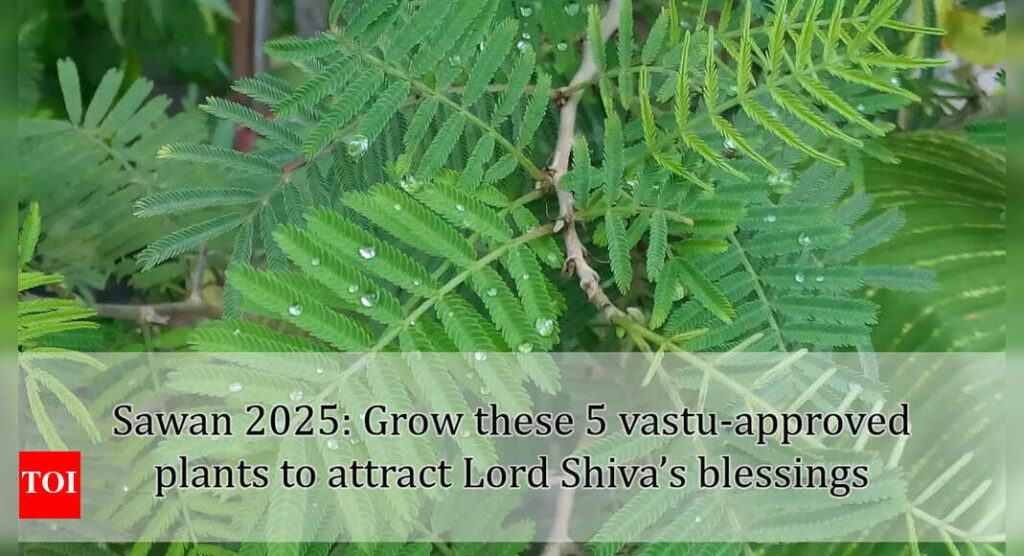
As the sacred month of Sawan began on July 11, 2025, and will continue until August 9, devotees across India have immersed themselves in devotion and rituals dedicated to Lord Shiva, also known as Bholenath. Known for its powerful spiritual energy, Sawan is a time when people fast, chant mantras, perform pujas, and align their lives with deeper spiritual intent. This monsoon period is not just significant for its religious observances, but also as a time to reconnect with nature. As per Hindu tradition and Vastu Shastra, planting certain sacred plants during Sawan is considered especially auspicious. These plants are believed to attract divine blessings, purify the surroundings, and invite peace, prosperity, and spiritual growth into the home. Here are five sacred Vastu plants to grow this Sawan 2025 to welcome positivity and Lord Shiva’s divine grace:
1. Bael Tree (Bel Patra)
Regarded as one of the holiest trees in Shaivism, the Bael tree is known for its trifoliate leaves, or Bel Patra, which are offered to Lord Shiva during worship. According to Vastu, planting a Bael tree at home during Sawan can help eliminate poverty, restore balance, and bring abundance into the household.
2. Tulsi Plant (Holy Basil)
Though Tulsi leaves are not traditionally offered to Shiva, the plant is sacred in Hinduism and symbolizes Goddess Lakshmi. Growing Tulsi during Sawan and performing daily puja near it is believed to enhance positivity, attract wealth, and usher in domestic harmony. It also purifies the air and strengthens the Vastu of any space.
3. Shami Plant
Also known as Prosopis, the Shami plant holds special reverence for both Lord Shiva and Shani Dev. Growing this plant during Sawan is said to help remove negativity and attract financial stability and spiritual protection. Regular worship of the Shami plant is thought to bring peace and karmic cleansing.
4. Aak Plant (Madar)
The Aak plant, particularly its white-flowered variant, is closely associated with Lord Shiva. Offering its leaves and flowers during Shivling pujas in Sawan is believed to fulfil wishes and invite divine blessings. Planting Aak at home during this period is thought to bring success, wealth, and continuous divine grace.
5. Datura Plant
A thorny plant with mystical associations, Datura is one of the most revered offerings to Shiva. During Sawan, devotees offer its flowers and fruit to the deity as a gesture of surrender and devotion. Keeping a Datura plant at home is said to offer spiritual protection, promote victory over adversities, and enhance household prosperity.
A Season of Spiritual Gardening
In Sawan, nature and divinity come together to create a powerful synergy. As the rains nourish the soil, planting these sacred species is not only a symbolic act of faith but also a practical step toward creating a peaceful and spiritually aligned home. For devotees, these plants serve as living prayers, rooted in the earth, reaching toward the divine. So as the skies pour their blessings, let your garden reflect your devotion. Embrace the sacred greens of Sawan and let Lord Shiva’s grace bloom in every corner of your home.
Discover everything about astrology at the Times of India, including daily horoscopes for Aries, Taurus, Gemini, Cancer, Leo, Virgo, Libra, Scorpio, Sagittarius, Capricorn, Aquarius, and Pisces.








